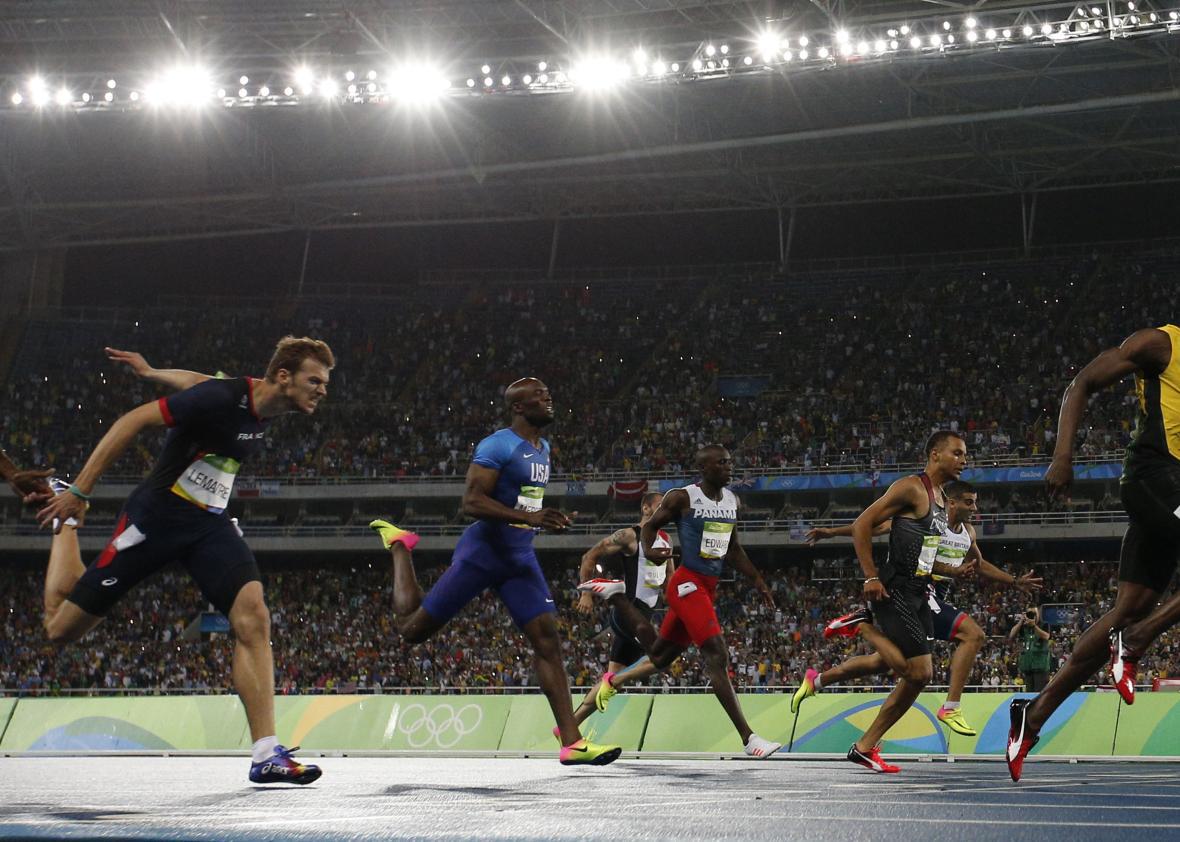David Epstein, a writer for ProPublica and the author of the book The Sports Gene, told a version of this story on Friday’s edition of Slate’s Hang Up and Listen Olympics Extra. An adapted transcript of the audio recording is below, and you can listen to Epstein’s essay by clicking on the player beneath this paragraph and fast-forwarding to the 25:40 mark.
There’s long been a maxim in sprinting that the best runners aren’t actually hitting the highest speeds, they’re just slowing down slower than the other runners. Every Olympics, major publications tell this story. For the most part, it isn’t true.
I’ve plotted velocity curves for many of Usain Bolt’s biggest races using data from the International Association of Athletics Federations, the governing body for track and field, and I’ve plotted his competitors as well. It is true that sprinters hit top speeds somewhere between 60 and 80 meters in the 100-meter dash and then start slowing down. But that has nothing to do with why Bolt wins.
When he set the 100-meter world record in Berlin in 2009, covering that distance in 9.58 seconds, Bolt decelerated at nearly precisely the same proportional rate as American sprinter Tyson Gay, who finished in second place. Bolt, though, hit a much higher top speed, so he was coming down from a higher high. In fact, he covered the ground from 60 to 80 meters in 1.61 seconds, the fastest time ever recorded.
In some of his other wins, Bolt was neither the fastest nor slowest proportional decelerator in the race. But that’s not really relevant, because the deceleration differences between competitors are at most a few hundredths of a second here and there. Relative deceleration could only possibly make a difference between sprinters who are trying to outlean each other at the line.
Really, you don’t need any data to know Bolt doesn’t win because he decelerates slower at the end of the race. Think back to the 100-meter final in Beijing in 2008 when he announced himself to the world with his first Olympic gold medal. Bolt was winning by so much that at around 80 or 85 meters, he turned to the crowd, started thumping his chest, and threw open his arms.
I plotted that race as well, and Bolt decelerated more while turning to the crowd than any other sprinter in any other race I’ve looked at. He still won by daylight and set the world record.
Bolt isn’t winning because he’s slowing down slower. He’s just faster than the other guys.
